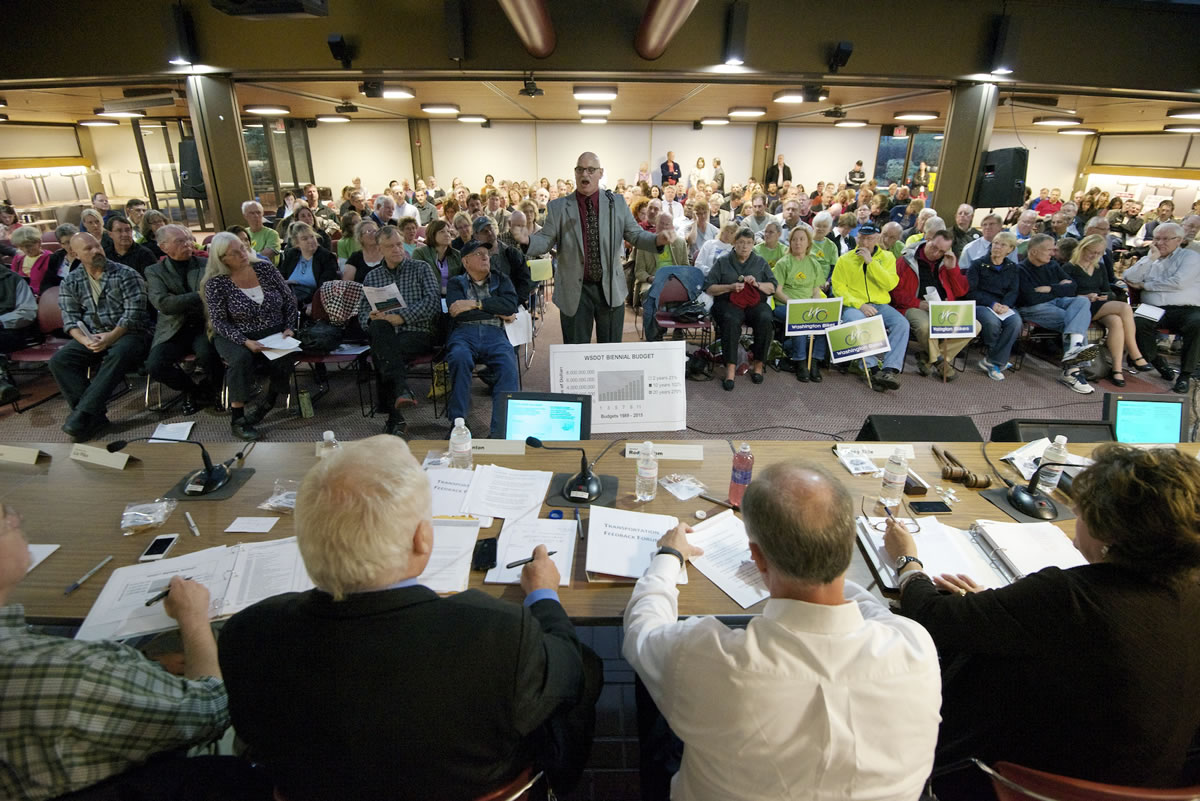As Washington lawmakers gear up once again to consider a transportation package in Olympia, a group of them listened on Monday to what Southwest Washington residents had to say about their transportation needs, and a potential gas tax increase.
Lawmakers adjourned this year without passing a transportation revenue package that would have raised about $10 billion in new revenue by imposing new fees and a 10.5-cent tax increase on each gallon of gas. The new money would have paid for a number of projects across the state, including the controversial Columbia River Crossing project.
About 200 people filled the room Monday evening at the Washington State Department of Transportation’s regional office in Vancouver, asking the panel of legislators to either oppose the CRC and light rail, or to support it, to keep bicyclists in mind as they’re working on a package, and to bolster the public’s trust in WSDOT.
They also sounded off on some of the cost-saving transportation reforms lawmakers will soon consider, including changes to the state’s prevailing wage laws, which set the pay rates for highway workers.




